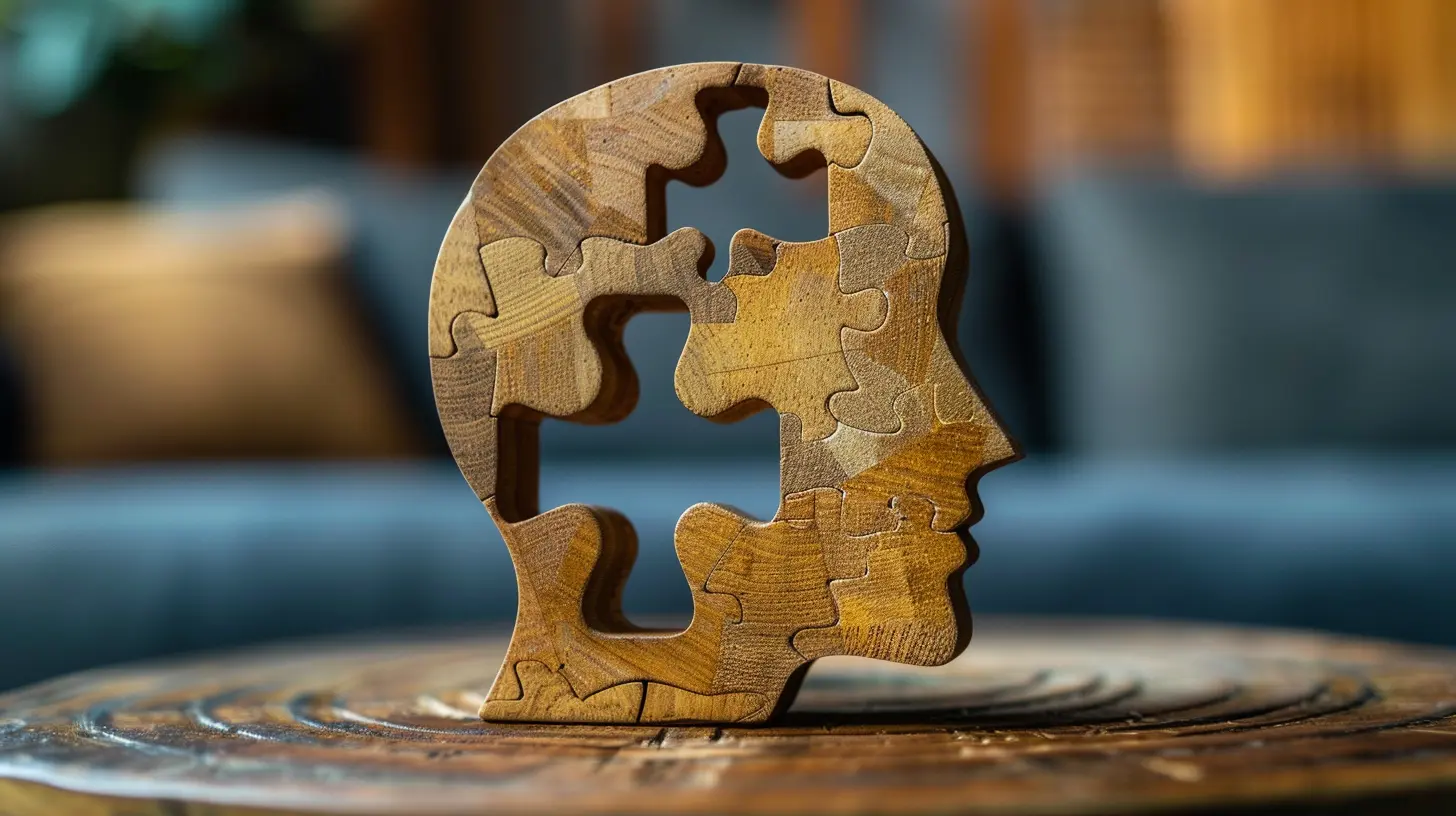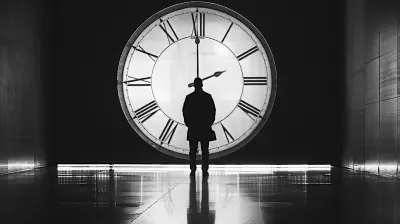The Importance of Emotional Safety in Therapy
2 September 2025
Therapy. Just hearing the word can stir up a whole bunch of emotions, right? For some, it's a source of relief — a warm place to unpack decades of emotional baggage. For others, it might bring up fear, uncertainty, or even skepticism. But regardless of where you fall on the spectrum, there’s one thing that’s absolutely essential for everyone stepping into a therapist's office: emotional safety.
Without emotional safety, therapy just doesn’t work the way it should. And if you're wondering why emotional safety matters so much, or how to even know if you’re experiencing it in your sessions, stick around because we’re going deep into it.
What Is Emotional Safety in Therapy, Really?
Before we get too ahead of ourselves, let’s define what emotional safety is — in plain English.Emotional safety is the feeling that you can be your truest, most vulnerable self without fear of being judged, criticized, or rejected. It’s the invisible but powerful force that lets people talk about their darkest thoughts, wildest dreams, or deepest fears and still feel secure.
In therapy, emotional safety is the secret sauce. It’s what allows a person to say, “I’m not okay,” or “I think I hate myself,” without flinching or second-guessing. It’s what gives therapy the power to heal.
Why Emotional Safety Is Non-Negotiable in Therapy
Emotional safety isn’t just a “nice-to-have.” It’s the foundation of every effective therapeutic relationship. Think about it: would you spill your heart out to someone if you felt they were judging you, rushing you, or not really “getting” you?Probably not.
When you don’t feel emotionally safe, your brain doesn’t let its guard down. It goes into protective mode — shutting doors, putting up walls, and doing whatever it takes to avoid pain. That’s pretty much the opposite of what therapy is supposed to do.
So when emotional safety is present, something magical happens. You start to share more honestly. You connect the dots faster. You begin to heal wounds that you’ve buried for years.
Here’s why it matters so deeply:
- It builds trust: Between you and your therapist, trust is the glue. Without trust, there’s no real progress.
- It encourages vulnerability: Healing starts when we get real. Emotional safety creates the space for that raw honesty.
- It reduces shame: So many people walk into therapy carrying shame like a heavy backpack. A safe space helps lighten that load.
- It improves outcomes: A mountain of research shows that emotionally safe therapy leads to better mental health results.
Signs That You're Emotionally Safe in Therapy
So how do you know if you've got emotional safety in your sessions? It’s not like there’s a big flashing neon sign that says, “SAFE ZONE.” But you can absolutely feel it.Here are some big green flags to look out for:
1. You Feel Heard and Understood
When you talk, your therapist really listens. Not just to your words, but to the feelings under them. You don’t feel brushed off or misinterpreted.2. You Don’t Feel Judged
Even when you talk about the things you’re most ashamed of, your therapist stays calm, compassionate, and open. You don’t feel looked down on — ever.3. You Can Be Yourself
You can cry, laugh, swear, or sit in silence without worrying about how it looks. There’s no pressure to perform or be anyone other than you.4. You’re Not Rushed
You get the time and space you need to process things. Your therapist doesn’t push you faster than you’re ready to go.5. Boundaries Are Respected
Your therapist respects your boundaries and teaches you that it’s okay to set them — both in therapy and in your life.
What Happens When Emotional Safety Is Missing?
Let’s be real: therapy isn’t always emotionally safe.Maybe the therapist talks over you. Maybe you feel judged. Or maybe you just have this nagging feeling in your gut that something’s off. Whatever the case, when emotional safety is missing, it can actually do more harm than good.
Here’s what that might look like:
- You hold back from saying what you really feel.
- You start dreading your sessions.
- You feel anxious or drained afterward.
- You don’t feel like therapy is helping — or worse, it’s making things heavier.
And honestly? That’s not your fault. A therapist’s number one job is to create a space where safety and healing can happen. If that space feels threatening, broken, or cold, it’s totally valid for you to reconsider.
How Therapists Create a Safe Emotional Space
A great therapist isn’t just trained in theories and tools — they’re experts in creating emotional safety. And they do it intentionally, by focusing on a few key practices:1. Building Trust from the Start
They take time to get to know you before diving into the deep stuff. They ask questions and listen with their full attention.2. Being Non-Judgmental
No eye rolls, no shocked gasps, no dismissive responses. Just compassionate listening, no matter what you share.3. Holding Space
They allow silence. They sit with your emotions. They give you room to explore without rushing to fix or analyze everything.4. Being Transparent
They clarify the therapy process, set clear boundaries, and make you feel comfortable at every step.5. Validating Your Emotions
They never, ever tell you how you “should" feel. Instead, they acknowledge your experience and let you claim your emotions without guilt.Your Role in Creating Emotional Safety
Here’s the twist — emotional safety in therapy is a two-way street. Yes, it’s largely up to the therapist to set the tone, but you also play a part in building that trust. It all starts with being honest — with yourself and with your therapist.If something feels off, say it. If you're holding back, explore why. If you feel like you're not connecting, bring it up. A skilled therapist will not only welcome that feedback — they'll encourage it.
And listen, it’s okay to shop around. Finding the right therapist is kind of like dating. You might not click with the first one you meet — and that’s completely normal.
What to Do If You Don’t Feel Emotionally Safe in Therapy
Let’s say you’re in therapy already but something just doesn’t feel right. You're not sure if it’s you, them, or the process itself. Trust your gut. If you're not feeling safe emotionally, it's worth addressing.Here’s what you can do:
1. Reflect on your experience
What specifically is making you feel unsafe? Is it something the therapist said or did? Or is it a past trauma surfacing?
2. Talk to your therapist about it
This can be scary, but a great therapist will handle it with grace. It might even deepen your therapeutic relationship.
3. Consider switching therapists
Sometimes, it’s just not the right fit. And that’s fine. Therapy should empower you — not stress you out.
4. Prioritize your wellbeing
Always remember: your mental health is the priority. If therapy is not serving you, it’s okay to look elsewhere.
Creating Emotional Safety Outside the Therapy Room
While therapy is a safe haven, emotional safety shouldn’t stop there. The goal is to carry that sense of security into your daily life — your relationships, your work, your self-talk.Here’s how you can start creating emotionally safe environments for yourself:
- Surround yourself with people who listen without judging.
- Set boundaries without guilt.
- Practice self-compassion.
- Speak up when something doesn’t feel right.
- Give yourself permission to feel — all of it.
Think of emotional safety as the soil your mental health grows in. The richer and more nurturing it is, the stronger your roots become.
Final Thoughts
Therapy isn’t just about insight or coping skills — it’s about transformation. And transformation only happens when we feel safe enough to show up as we truly are. Emotional safety is what makes that transformation possible.So if you’re just starting therapy, looking for a new therapist, or even considering stopping altogether — check in with yourself. Do you feel safe? Do you feel seen? Do you feel respected?
Because if that foundation isn’t there, it’s okay to pause and rebuild it somewhere else. You owe yourself that much.
all images in this post were generated using AI tools
Category:
PsychotherapyAuthor:

Janet Conrad
Discussion
rate this article
1 comments
Arlo Parker
Emotional safety fosters healing and growth!
September 21, 2025 at 5:03 PM

Janet Conrad
Absolutely! Emotional safety is crucial for clients to feel secure and open, paving the way for healing and personal growth.


